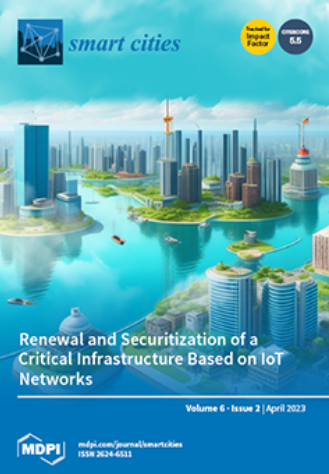塞纳湖饮用水水质指标的多元线性回归与机器学习预测
IF 5.5
Q1 ENGINEERING, ELECTRICAL & ELECTRONIC
引用次数: 1
摘要
确保社区获得安全和清洁的饮用水至关重要,由于人口增长、工业活动和环境污染带来的挑战,需要有效的工具来监测和预测水质。本文评估了多元线性回归(MLR)和19种机器学习(ML)模型的性能,包括基于回归、决策树和boosting的算法。模型包括线性回归(LR)、最小角度回归(LAR)、贝叶斯脊链(BR)、脊回归(ridge)、k-最近邻回归(K-NN)、额外树回归(ET)和极端梯度增强(XGBoost)。本研究的目的是利用MLR和ML模型估计拉塔基亚省Al-Seine湖的地表水质量。利用叙利亚拉塔基亚市饮用水湖泊2021-2022年的水质数据确定水质指数(WQI)。采用决定系数(R2)和均方根误差(RMSE)等统计方法评估MLR和ML模型的预测性能,以估计其效率。结果表明,MLR模型和线性回归(LR)、最小角度回归(LAR)和贝叶斯脊链(BR) 3种ML模型均能较好地预测WQI。MLR模型的R2为0.999,RMSE为0.149,而三个ML模型的R2为1.0,RMSE约为0.0。这些结果支持使用MLR和ML模型对WQI进行非常准确的预测,这将有助于改善水质管理。本文章由计算机程序翻译,如有差异,请以英文原文为准。
Multiple Linear Regression and Machine Learning for Predicting the Drinking Water Quality Index in Al-Seine Lake
Ensuring safe and clean drinking water for communities is crucial, and necessitates effective tools to monitor and predict water quality due to challenges from population growth, industrial activities, and environmental pollution. This paper evaluates the performance of multiple linear regression (MLR) and nineteen machine learning (ML) models, including algorithms based on regression, decision tree, and boosting. Models include linear regression (LR), least angle regression (LAR), Bayesian ridge chain (BR), ridge regression (Ridge), k-nearest neighbor regression (K-NN), extra tree regression (ET), and extreme gradient boosting (XGBoost). The research’s objective is to estimate the surface water quality of Al-Seine Lake in Lattakia governorate using the MLR and ML models. We used water quality data from the drinking water lake of Lattakia City, Syria, during years 2021–2022 to determine the water quality index (WQI). The predictive performance of both the MLR and ML models was evaluated using statistical methods such as the coefficient of determination (R2) and the root mean square error (RMSE) to estimate their efficiency. The results indicated that the MLR model and three of the ML models, namely linear regression (LR), least angle regression (LAR), and Bayesian ridge chain (BR), performed well in predicting the WQI. The MLR model had an R2 of 0.999 and an RMSE of 0.149, while the three ML models had an R2 of 1.0 and an RMSE of approximately 0.0. These results support using both MLR and ML models for predicting the WQI with very high accuracy, which will contribute to improving water quality management.
求助全文
通过发布文献求助,成功后即可免费获取论文全文。
去求助
来源期刊

Smart Cities
Multiple-
CiteScore
11.20
自引率
6.20%
发文量
0
审稿时长
11 weeks
期刊介绍:
Smart Cities (ISSN 2624-6511) provides an advanced forum for the dissemination of information on the science and technology of smart cities, publishing reviews, regular research papers (articles) and communications in all areas of research concerning smart cities. Our aim is to encourage scientists to publish their experimental and theoretical results in as much detail as possible, with no restriction on the maximum length of the papers published so that all experimental results can be reproduced.
 求助内容:
求助内容: 应助结果提醒方式:
应助结果提醒方式:


